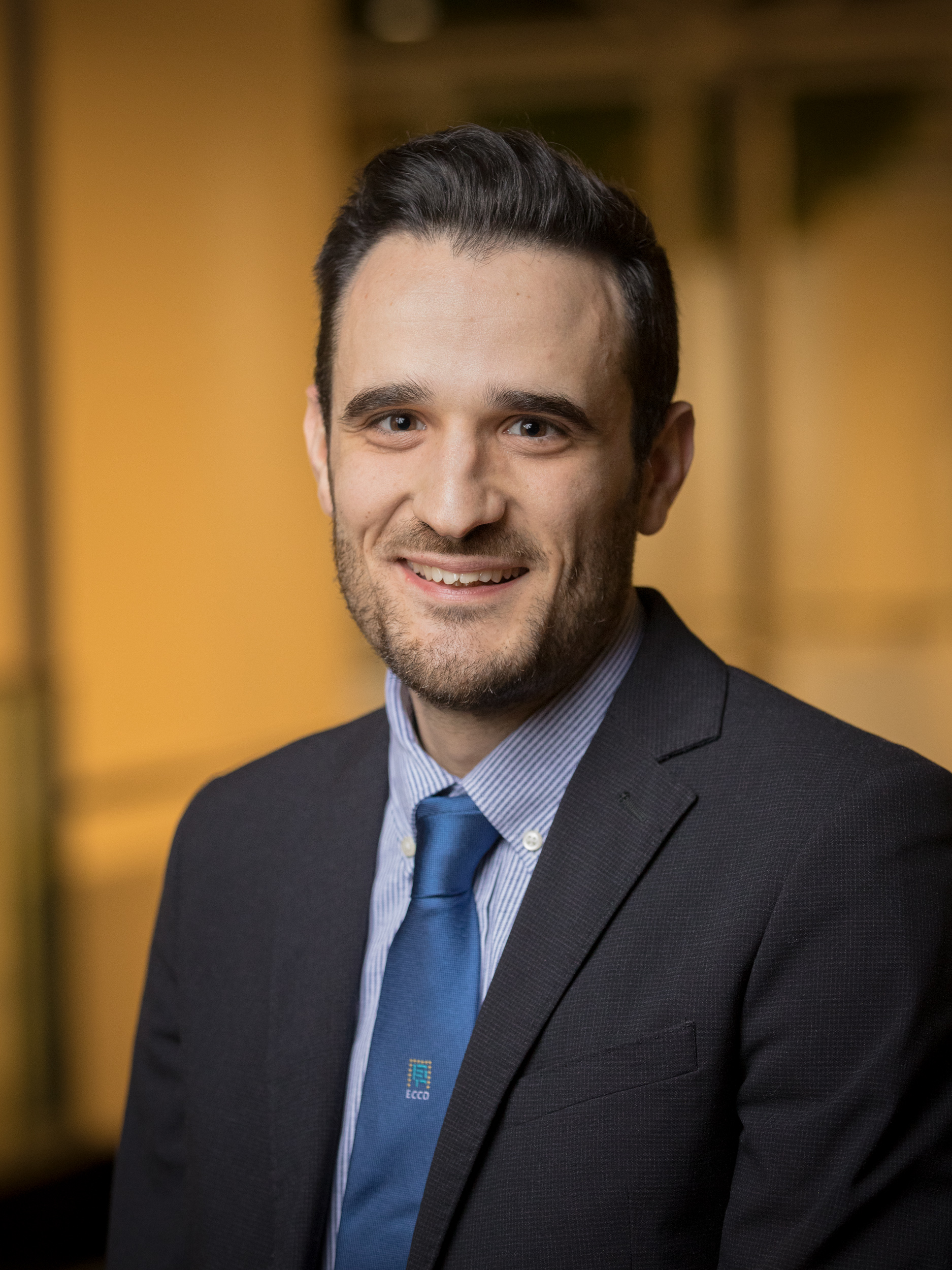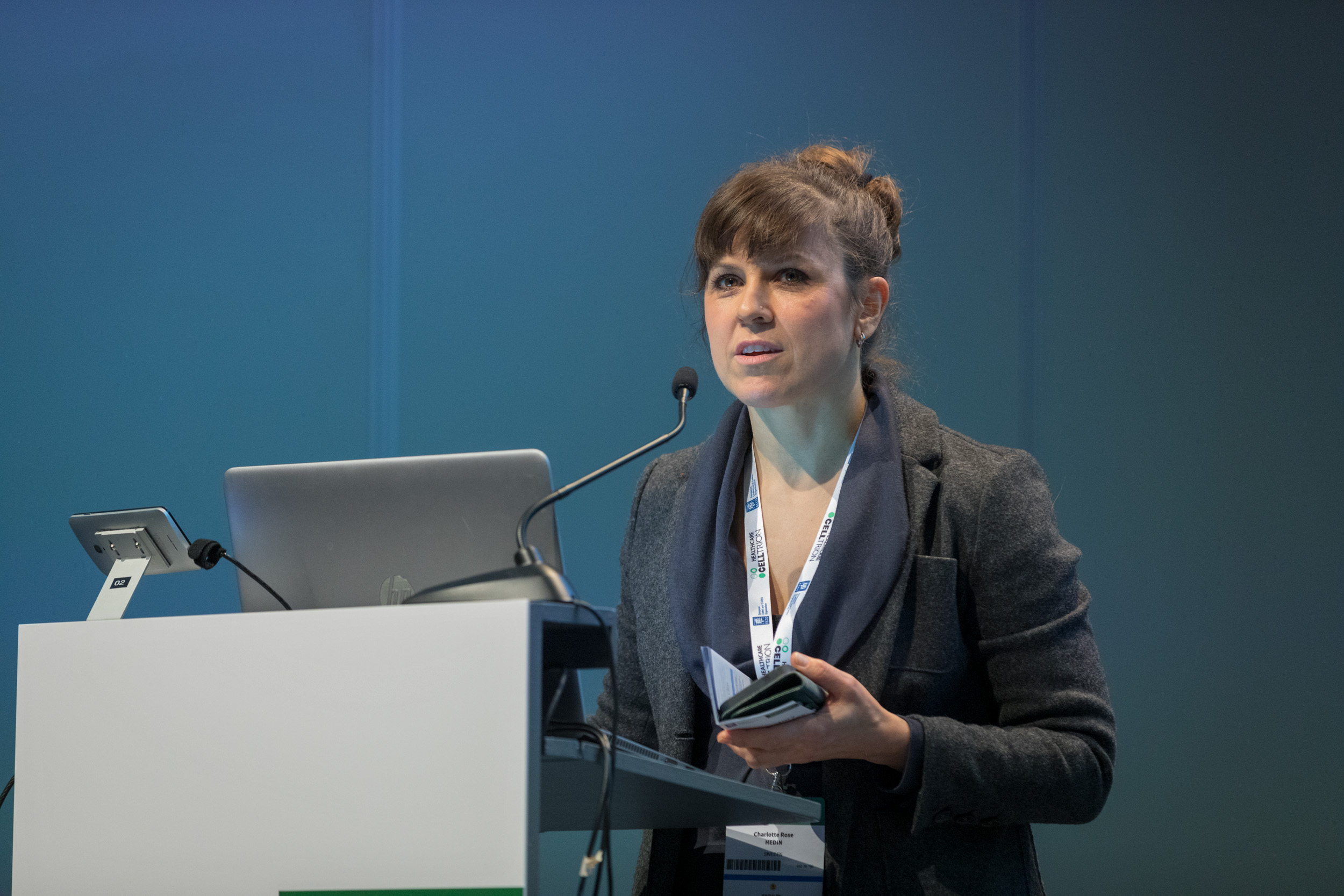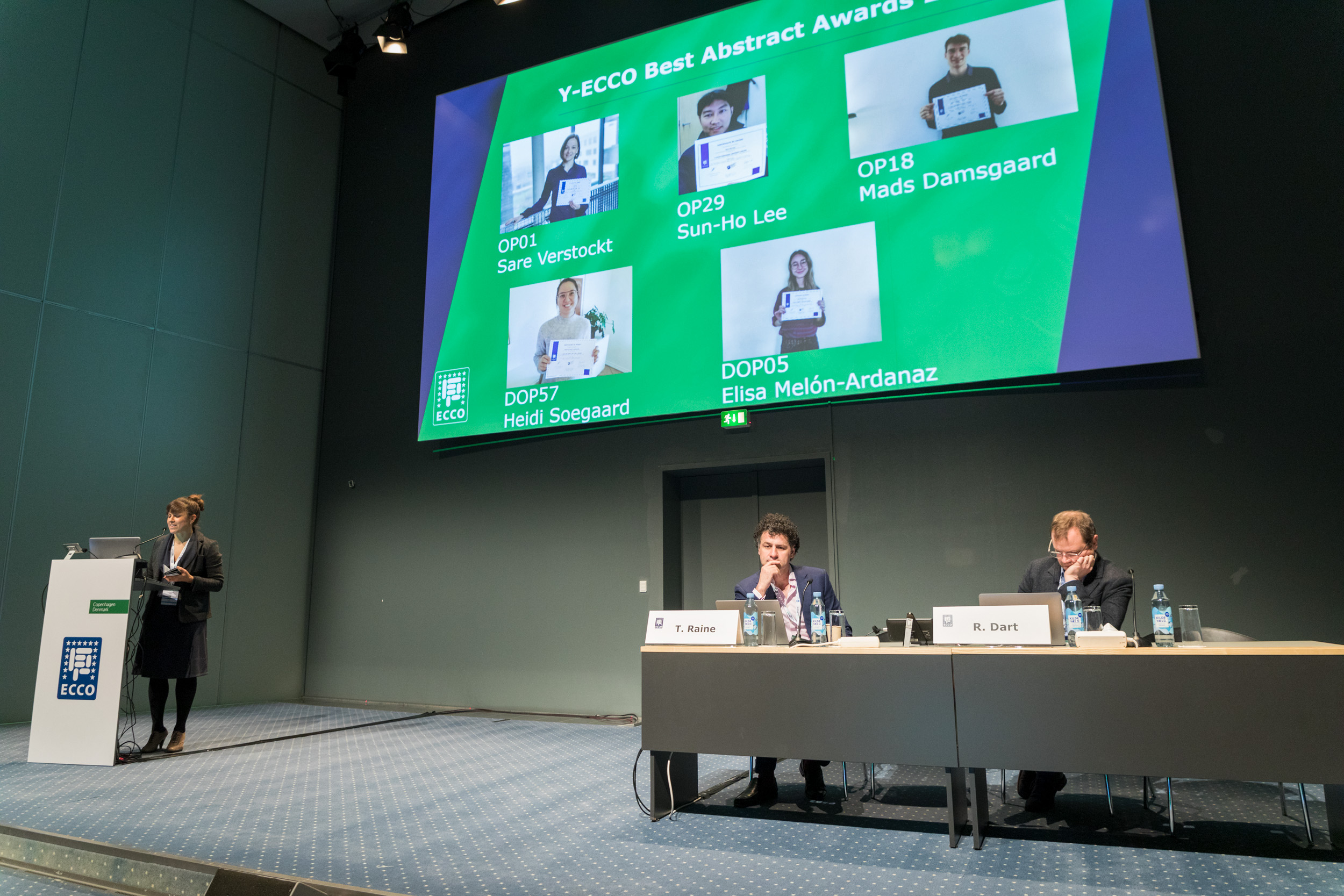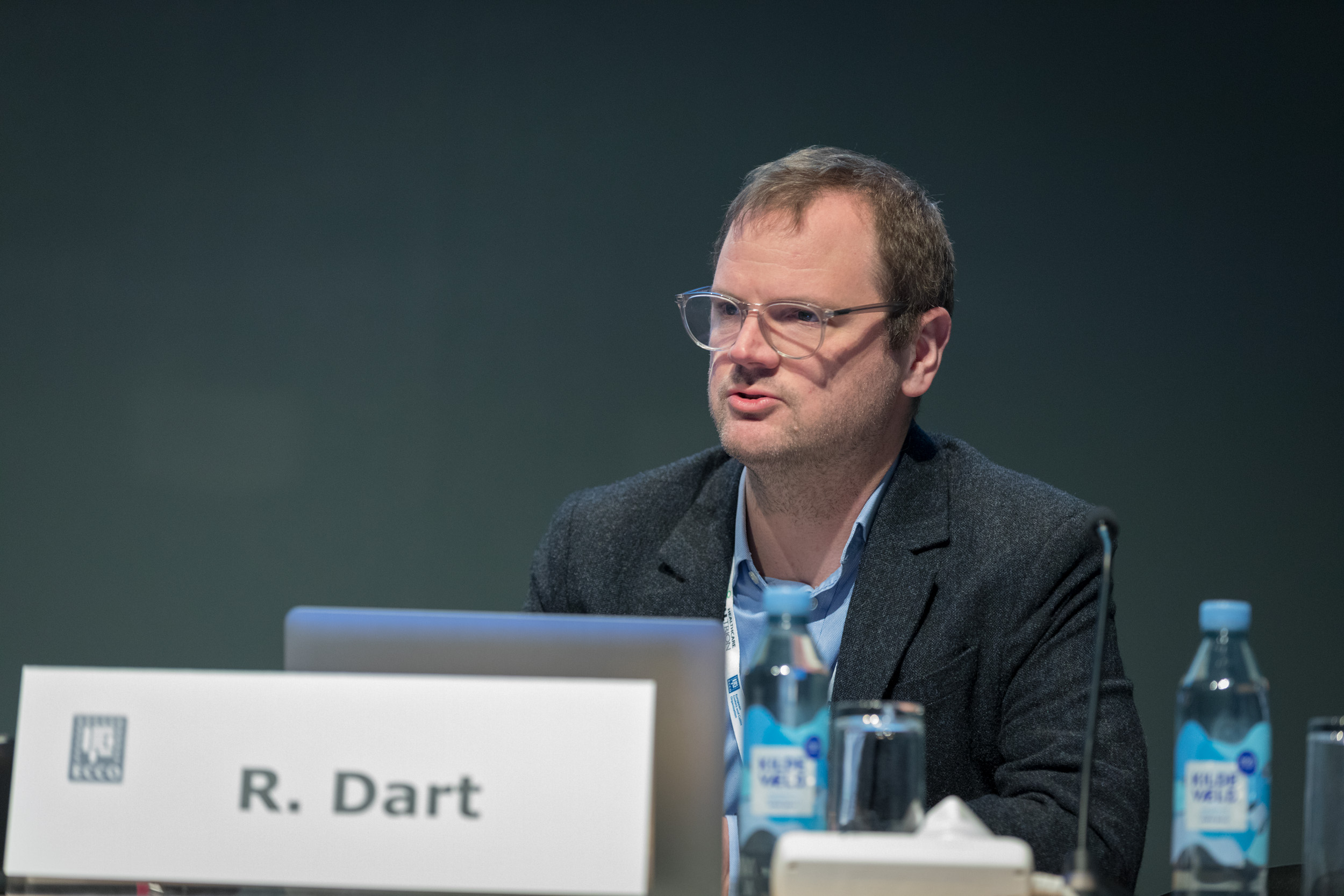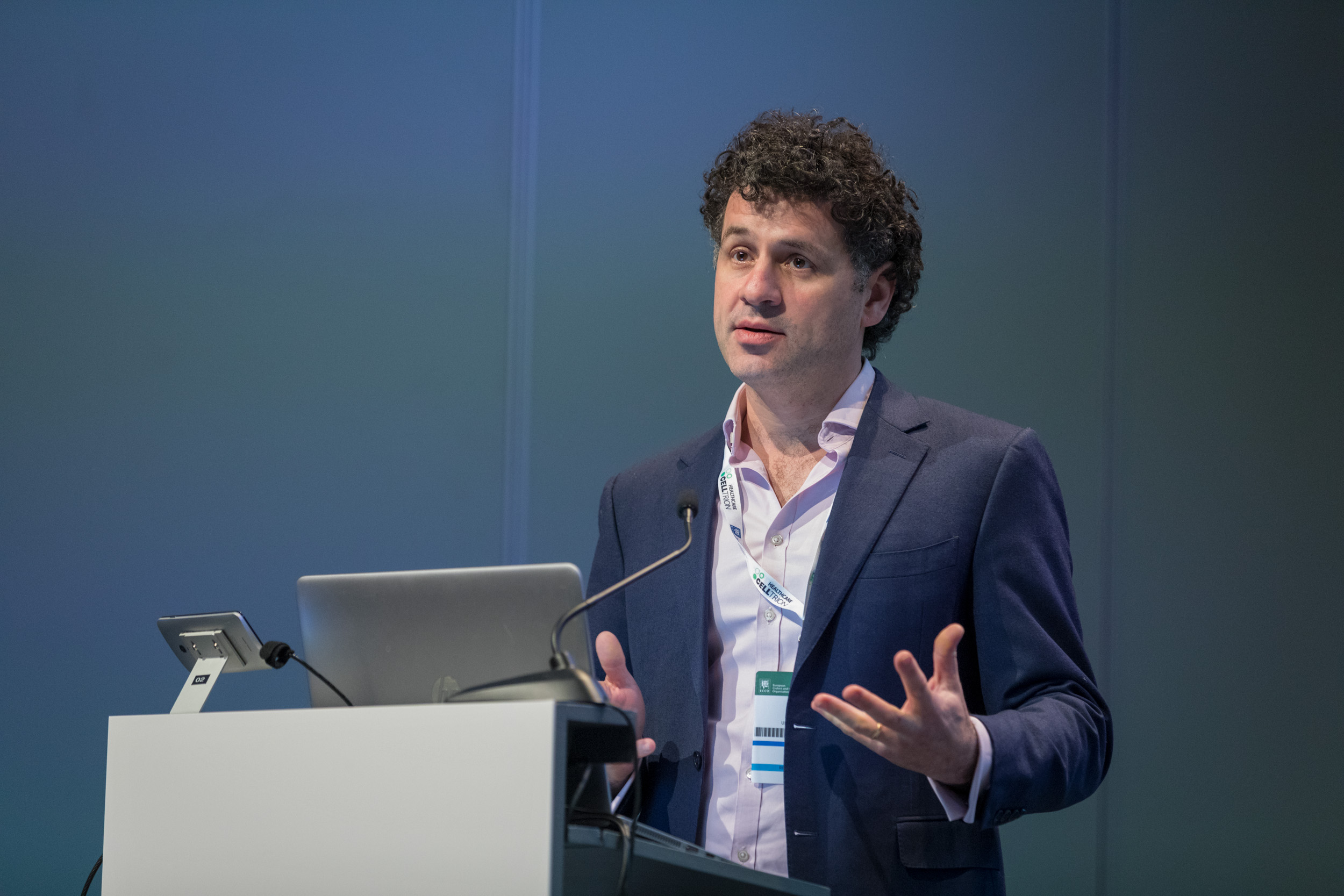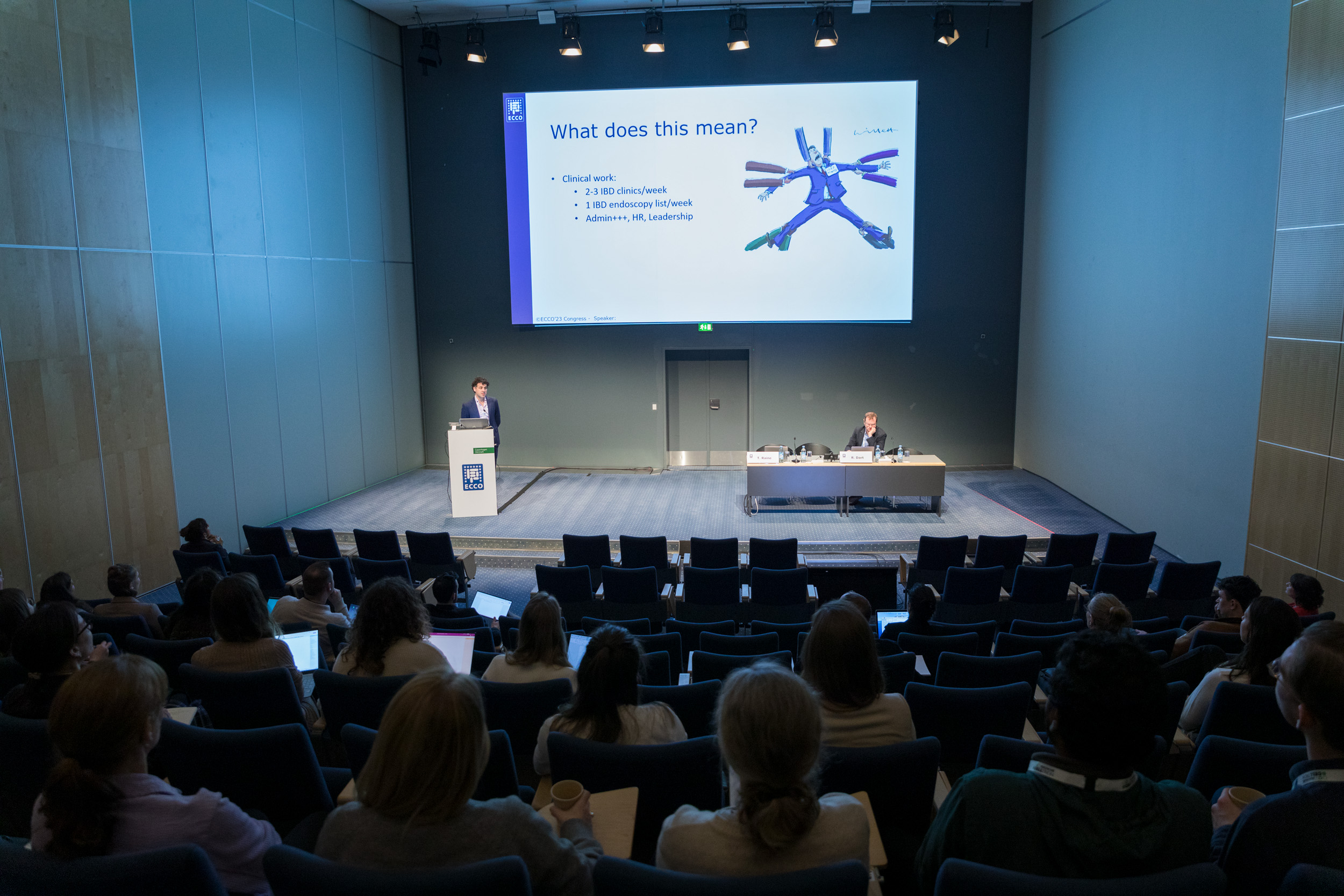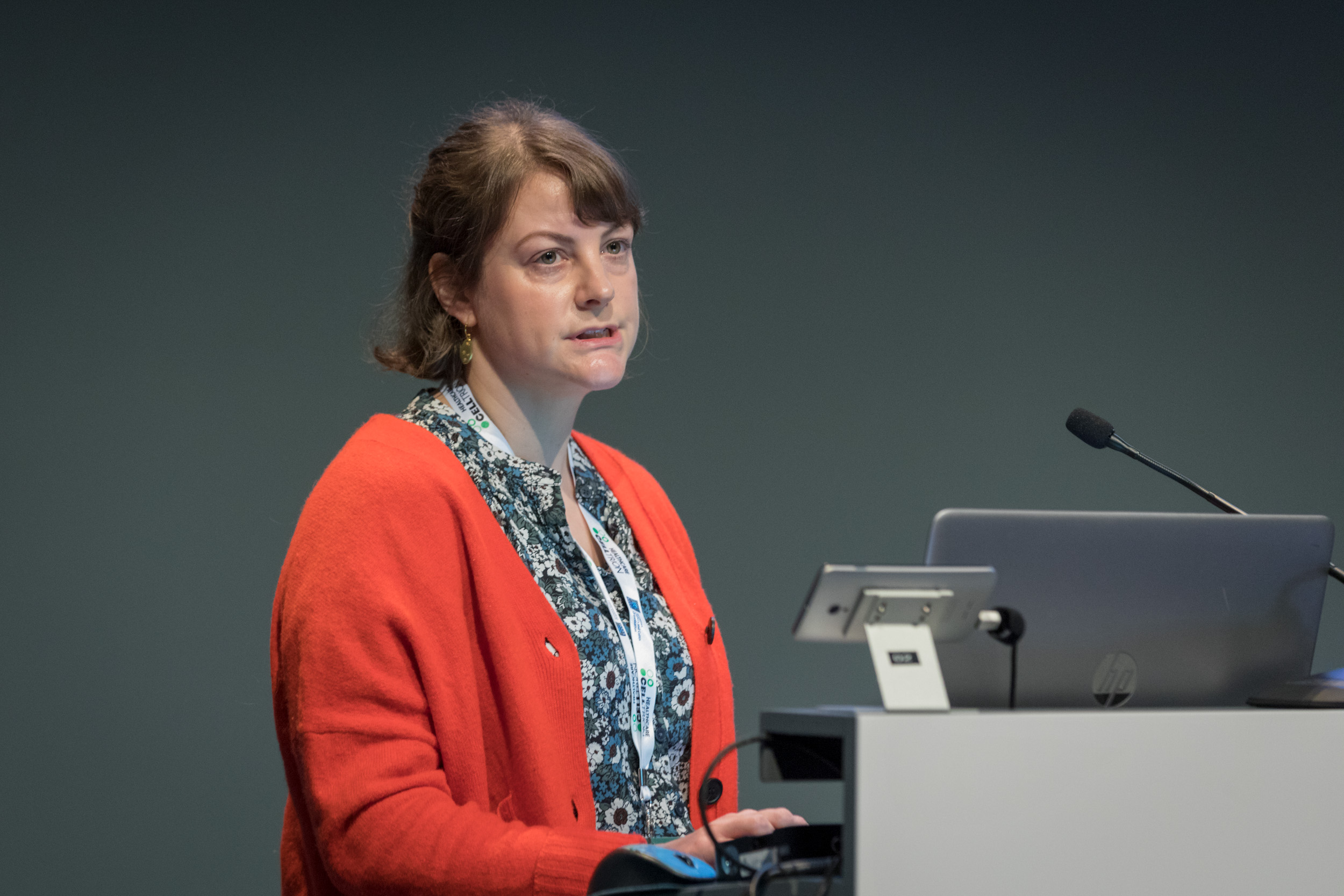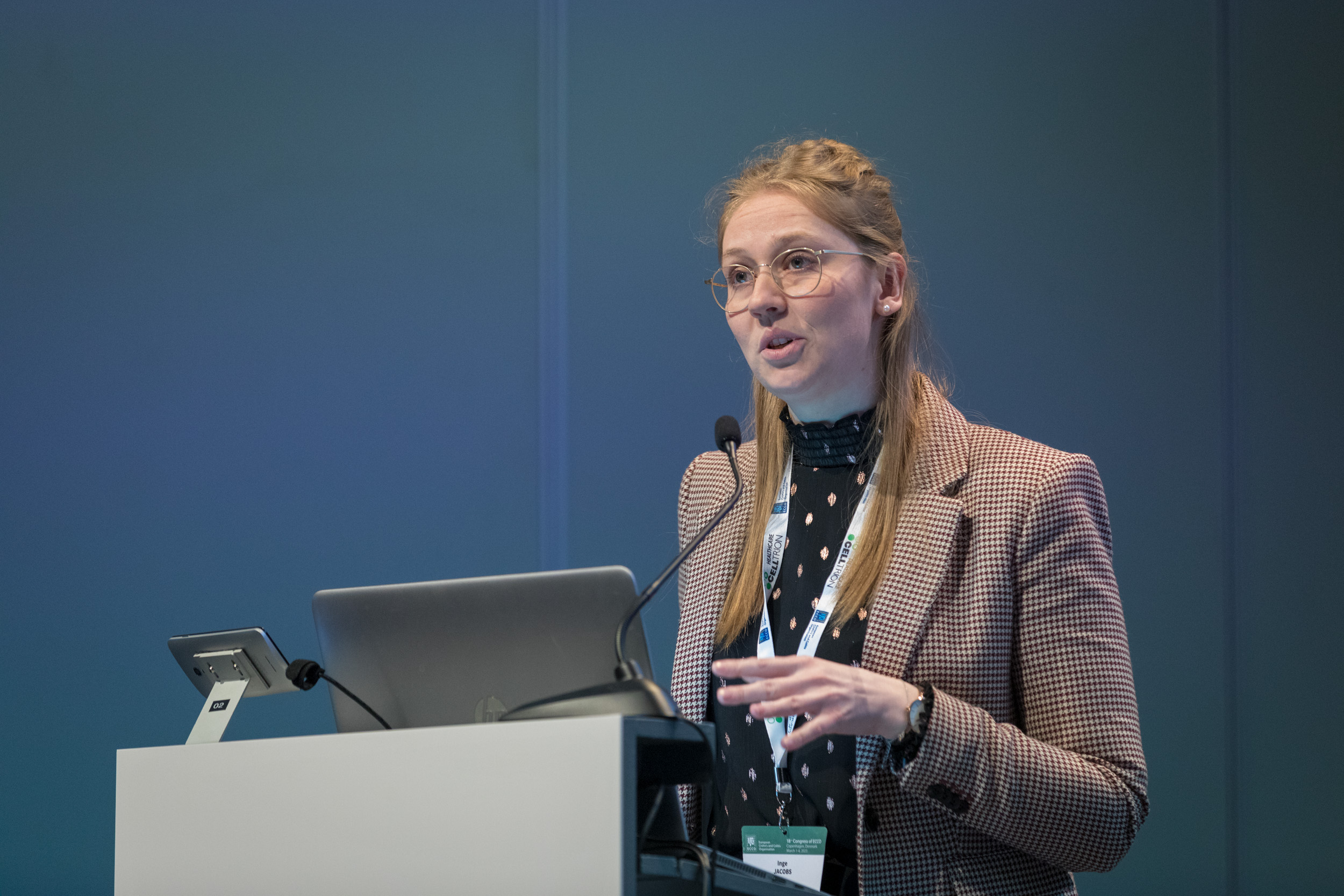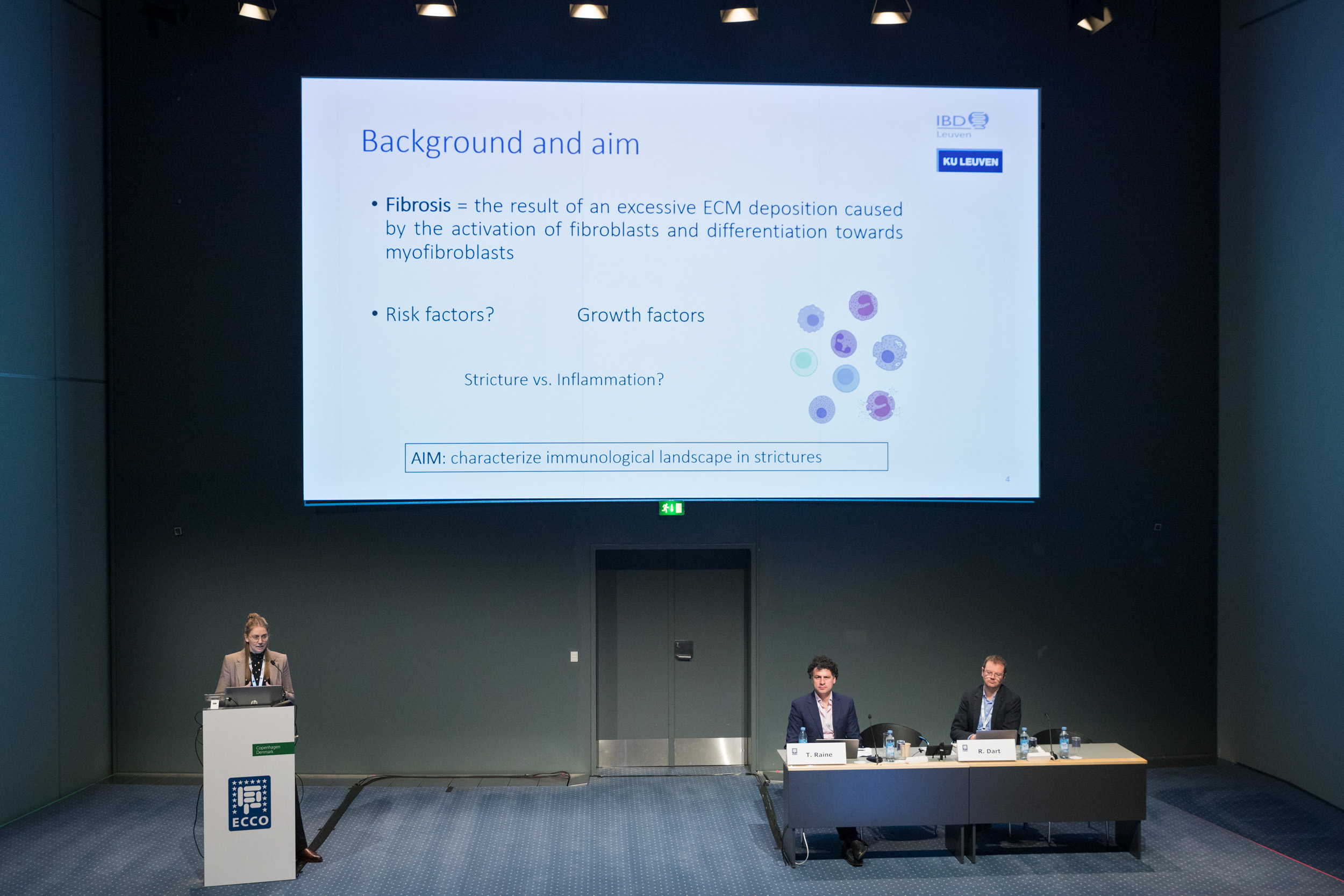Report on the 9th Y-ECCO Basic Science Workshop
Gabriele Dragoni, Y-ECCO Member
|
Gabriele Dragoni |
After two consecutive virtual events, the Y-ECCO Basic Science Workshop was back with a face-to-face meeting, reaching its 9th edition on March 1, 2023, in Copenhagen.
This Workshop aims to involve young fellows in a fully comprehensive manner, giving them the opportunity to present relevant data that were submitted for the scientific programme and discuss their views with successful key opinion leaders in the field of Inflammatory Bowel Diseases (IBD), with special focus on basic and translational research. All sessions open with a hot topic presented by an invited senior specialist, followed by excellent presentations by selected young researchers. The secret of the constant success of this initiative is the friendly atmosphere, which allows participating Y-ECCO Members to increase their knowledge while also preparing for more challenging stages.
The title of the 9th Y-ECCO Basic Science Workshop was “From Bench to Bedside to Blog”, highlighting the importance of multitasking for future researchers who will have to cope with basic science, clinical studies and the world of social media at the same time. The outgoing Y-ECCO Chair, Charlotte Hedin (Sweden), introduced the Workshop with a warm welcome. Session 1, “The Bench – Basic Science”, was chaired by Robin Dart and Tim Raine (United Kingdom) and was kicked off by Dr. Raine himself. In his inspiring talk, Tim recalled his path, showing the advantages and frustrations of dealing with clinical duties together with academic supervision, group leadership and advisory work for industry. By introducing the audience to some of his present projects in his split career, he stressed the importance of knowing when to say no. Three abstract presentations followed during the first session. Margarita Papatheodoridi (UK) reported the discovery of matrikines, which are peptides uniquely present in Crohn’s fibrotic extracellular matrix that have an effect on cell proliferation, profibrotic gene activation and increased migration of intestinal myofibroblasts. The audience will have to wait for the final data to be published to learn more, as the exact sequence was not disclosed during the event. The second abstract presentation, by Jennie Clough (UK), sought to determine the impact of the rs61839660 risk allele on NK cell immunophenotype and function. After showing that this risk allele confers hyper-responsivity to IL2 signalling via enhanced CD25 expression, it was hypothesised that carrying this allele might increase the risk of adverse events after exposure to a low dose of IL2, suggesting the need to screen patients who enter a clinical trial with this intervention. Interrupting the British dominance, Inge Jacobs (Belgium) presented another study on Crohn’s fibrosis, focusing on the interaction of intestinal fibroblasts with the inflammatory milieu. In particular, it was shown that both fibrotic and inflamed tissue presents increased numbers of activated eosinophils, Th2 and regulatory T cells as well as a reduction in Th1 cells. Although not focusing on a single target, this work could help the prioritisation of potential anti-fibrotic targets for fibrostenotic Crohn’s Disease.
After a brief coffee break, the Workshop resumed with Session 2, “Bedside – Translation to the clinic”, with Bram Verstockt (Belgium) and Iris Dotan (Israel) as chairs. Iris gave a talk on how translational science incorporates benchside, bedside and community, combining these disciplines in a bidirectional process. While giving examples on the field, she showed the audience that a physician scientist is the one bridging the gap between practicing clinicians and biomedical scientists. Opening the second session of abstracts, Mariana Bronze (Denmark) presented an in vivo human injury model of the intestine using sigmoidoscopy with biopsies, with the aim of describing the early cellular response to damage. The subsequent RNA sequencing inferred that Ulcerative Colitis patients in complete remission have an increased innate immune response compared to non-IBD patients due to early recruitment of inflammatory monocytes, mast cells and innate lymphoid cells. Then, it was the turn of Lukas Unger (Austria), who investigated the B cell response in draining lymph nodes of Crohn’s Disease patients undergoing resection, concluding that a pathological IgG response is directed against a wide group of antigens, almost universally commensals. Additionally, a leaky barrier may explain why this expansion is present only at the site of inflammation. The last abstract of this session was by Marie Truyens (Belgium), who aimed to improve the understanding of IBD-related fatigue, assessing behavioural alterations in mice experimenting chronic colitis. The conclusions were that an altered microglial morphology was correlated with chronic colitis, and recovered mice still presented fatigue, together with persistent neuroinflammation.
The final session “Blog – Disseminating your research”, was co-chaired by Gianluca Pellino (Italy) and Aline Charabaty (United States), with a brilliant talk by the latter on how social media can boost anyone’s career and visibility. Particularly focusing on Twitter, Dr. Charabaty showed how this platform helps the dissemination of research to the community, serves as a clinical service with possible interactions with patients, provides global and multidisciplinary engagement, and open opportunities for collaboration and professional advancements. Two more projects were then presented. Roksana Pirzgalska (Portugal) investigated whether the neuroepithelial axis in the intestine is able to regulate nutrient absorption and immunity. Her results showed that VIP neurons, which highly innervate the gut, are potential regulators of gut homeostasis and metabolism since they increase the lipid and glucose transport in the duodenum, together with upregulation of type 1 and type 2 alarmins. The last on stage, Mohammed Nabil Quraishi (UK), reported about gut microbiota modulation and its consequences for bile acid homeostasis. With his study on Ulcerative Colitis patients with concurrent primary sclerosing cholangitis, treated with 4 weeks of oral vancomycin, Dr. Quraishi demonstrated a transient drop in faecal calprotectin, alkaline phosphatase and transaminases, together with improvement in clinical and endoscopic scores upon antibiotic treatment, with a loss of effect after 4 additional weeks of washout. Also, a significant reduction in alpha diversity and shift in beta diversity of the microbiome were reported. After a final discussion, Charlotte Hedin gave the closing remarks at the end of the meeting.
The high need for an in-person meeting made this year’s Workshop one of the most followed since the first editions. The whole Y-ECCO Committee is already working on the programme for next year, which promises similar engagement and interactions between diverse international experts and keen young researchers. With an eye to the 2nd Y-ECCO Mentorship Forum, we are already welcoming you to participate in next year’s Y-ECCO Science Workshop, which will take place in the beautiful Stockholm!
Pictures are subject to copyright © ECCO



